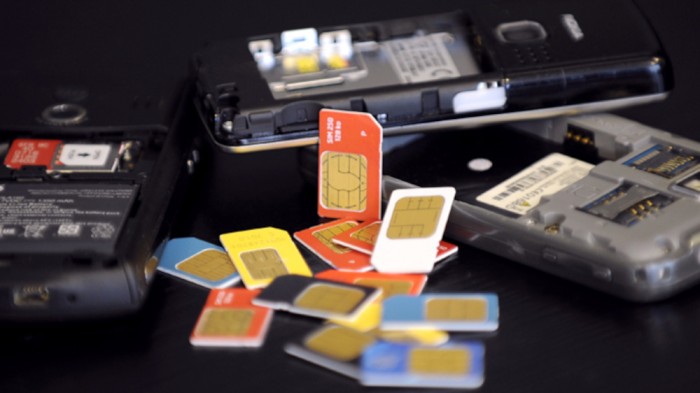Finding the Perfect SIM Card for Your Malaysian Adventure. That first Malaysian humidity wave when I stepped off the plane? Brutal. As my phone uselessly searched for a signal, I realized two things: I should have taken a screenshot of my hotel address, and I needed a local SIM card yesterday. Every traveler learns this lesson eventually – some of us the hard way.
After three trips and plenty of trial-and-error, here’s what I wish someone had told me about staying connected in Malaysia without breaking the bank or losing my mind.
Why You Absolutely Need a Local SIM
Remember that time I thought I could survive on airport Wi-Fi? Big mistake. Here’s why local SIMs are essential and how I choose the Best SIM card for tourists in Malaysia:
- Your home carrier will rob you blind – I paid $12 for 100MB of data before learning my lesson
- Everything runs on apps here – Grab for rides, FoodPanda for late-night nasi lemak cravings, and even some parking meters require mobile data
- Malaysia’s networks are surprisingly good – Even on islands like Langkawi, I’ve gotten better speeds than in my hometown
The Real Deal on Tourist SIM Cards
After testing all the major providers and suffering through some terrible ones, here’s my honest take:
1. Celcom – The Safety Net
Last month in the Cameron Highlands, where other signals disappeared, my Celcom SIM kept working. Their tourist pack gives you:
- 10GB for RM35 (about $7.50)
- 30 days validity – perfect for longer trips
- Bonus: Works great in East Malaysia (Borneo), where some providers struggle
Downside: Their app is clunky, but the coverage makes up for it
2. Digi – For the Instagram Addicts
When my friend visited, she burned through 5GB in two days just posting food pics. Digi’s solution?
- 20GB + unlimited social media for RM40
- 30 days of non-stop scrolling
- Pro tip: Buy at the airport – they’ll set it up for you while you wait for luggage
Watch out: Signal gets shaky in rural Perak and Kelantan
3. Hotlink (Maxis) – The Speed Demon
I clocked 250Mbps on their 5G network near KLCC – faster than my home broadband! Their tourist package includes:
- 30GB for RM45
Once you burn through your fast data, they don’t cut you off completely – you’ll still get slower but usable speeds. Perfect if you’re trying to get work done between beach trips. Yeah, it costs a bit more, but when your Zoom call can’t afford to drop during that important meeting, you’ll be glad you paid the extra few ringgit.
Where and How to Buy
Here’s my step-by-step from landing to connected:
- At KLIA: Turn left after immigration – the Digi and Celcom counters are right there (open until midnight)
- Pro move: Have exact cash – they often run out of change
- Alternative: 7-Eleven stores (look for the blue SIM card displays)
- Avoid: Random street vendors – some sell expired packs
Activation Made Simple
Last November, I watched a German tourist spend 45 minutes trying to activate his SIM. Don’t be that guy:
- New rule: Your passport is required – keep it handy
- Instant activation: Most work within 5 minutes now
- Top-up trick: Use the Touch ‘n Go app to reload credit while riding the MRT
eSIM Option (For Tech-Savvy Travelers)
My friend Sarah swears by Airalo’s Malaysia package:
- No physical SIM to lose
- Activates before you land
- But: Costs about 20% more than local options
Final Recommendation
- For first-timers: Grab a Celcom at the airport – it just works everywhere
- For city explorers: Hotlink’s 5G can’t be beat in KL and Penang
- For budget travelers: Tune Talk gives you decent data for under RM20
- Pro tip from my last trip: Keep the SIM packaging – that tiny piece of paper has your number when you inevitably forget it!
Why Bother with a Local SIM in Malaysia?
- Roaming is a Rip-Off – Unless you enjoy paying $10/day for sluggish data, local SIMs are way cheaper.
- You’ll Need Data for Everything – From Grab rides to food delivery (FoodPanda is a lifesaver) and navigating those hidden gem eateries, the internet is non-negotiable.
- Malaysia Has Insanely Fast Networks – 5G is widespread in cities, and even 4G is solid in most rural areas.
Activation & Top-Up Tips
- Activation: Most SIMs work instantly. Some require a quick passport scan—keep yours handy.
- Topping Up: Use the provider’s app (like MyDigi or Hotlink) or buy reload vouchers at any convenience store.
- Hotspot: Almost all plans allow tethering—no extra charge.
eSIM Option (For Fancy Phones)
If your phone supports eSIM (iPhone 14+, Samsung S22+, etc.), check out:
- Airalo or Nomad – Buy before you land and activate instantly.
- Digi eSIM – Local provider with decent plans.
Downside: The catch? You’ll pay a bit more than for a regular SIM. But honestly, when you’re jetlagged and just want to start using maps immediately, that convenience is worth every extra ringgit.
Final Verdict: Which SIM Should You Get?
Thus, you can find the Best SIM card for tourists in Malaysia.
- Best Overall: Celcom (reliable everywhere)
- Social Media Fiend: Digi (unlimited IG & YouTube)
- Need for Speed: Maxis Hotlink (5G is insane)
- On a Budget: Tune Talk (cheap but decent)
One Last Tip
Don’t make my mistake – double-check your phone’s unlock before you fly. You know that panic when your maps won’t load and you’re stranded at the airport? Let’s not do that.
There you have it – real talk from someone who’s fumbled with SIM cards at KLIA more times than I’d like to admit. Now grab a card, get online, and eat some satay! Thanks for staying with TravelHub Malaysia.

Comments